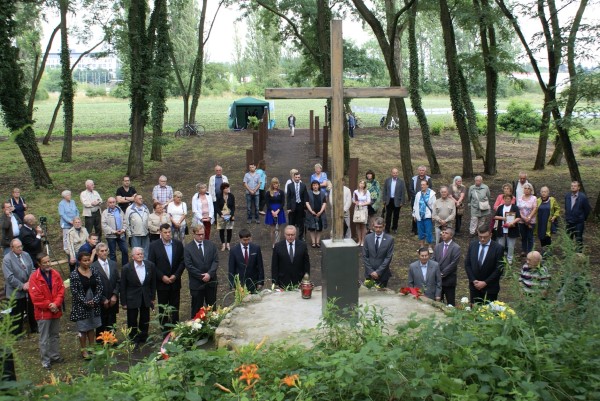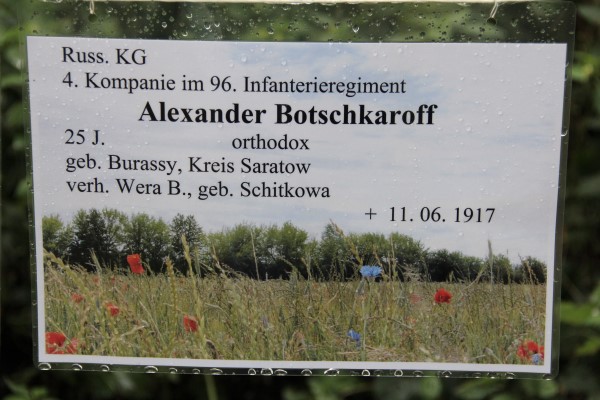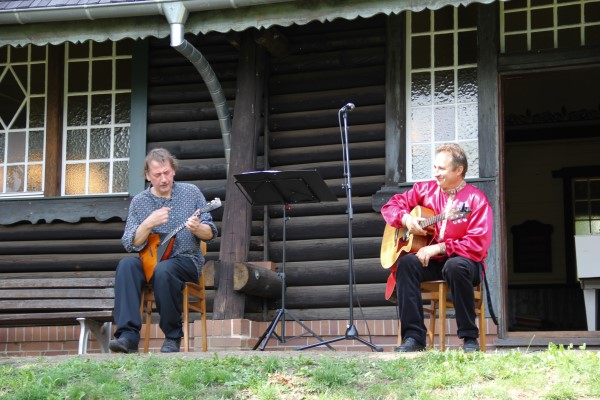A solemn event to commemorate the 100th anniversary of the consecration of the Russian Prisoners of War cemetery took place took place in Frankfurt.
Here Prisoners of War from first world war combat nations, including Russia, are buried. Russian and German citizens restored the cemetery together. At the cemetery a sombre ceremony was held. The names of the soldiers and officers buried there were given. A POW camp was based there from autumn 1914 to 1921. In October 1918 of 23000 people detained in the POW camp, 17327 were soldiers of the Russian tsar army.
The 100th anniversary was not the only date to commemorate, but also marked the next stage of cemetery restoration work for German and Russian volunteers. The restoration works will be led by the municipal administration of construction.
It took 23 years to channel the efforts of German citizens, and their support of the initiative of Russian-speaking residents in Berlin, into the visible result, particularly the forgotten and abandoned "Russian grove" (Russenwäldchen) which has been turned into " a Russian forest Cemetery " ( Russen-Waldfriedhof) with clear borders, the central Orthodox cross, wooden monuments with 580 names of the buried there and information board. In addition, big archive work was conducted which allowed to collect the most of existing city archive information about the buried in the cemetery.
In honor of the event volunteers prepared as much information as they managed to get form archives and other sources. They displayed name tablets with the names of the soldiers buried in the cemetery and all available information about them, they decorated information boards, where the history of the cemetery and its consecration on July 25th 1915 was detailed, and they placed the archive photos of that time.
The city administration of Frankfurt also played an active role in the improvement of the cemetery, laying a new driveway and cutting away dry trees.
Participants of the event included the head of the military memorial department of the RF Embassy in the FRG Vladimir Kukin, the chairman of the Turkish Embassy Ozden Kemal, the deputy chair of city council Korina Kriger and other German civil servants, the representatives of different public organizations, including the Cossacks from the ambassadorial Cossack village SVKO in the FRG and the numerous residents of Germany and Poland.
It was a particular pleasure to see the Serbian guests, who came from Berlin to commemorate the honor of 7 buried Serbian soldiers buries there.
The Turkish Embassy sent their representative as they were informed that one Turkish soldier rests there. The representative of the Russian Embassy awarded the Certificate of Merit to the German volunteers, who with the help of their commitment to principle and determination returned from the from mystery the names of the Russian soldiers who had died far from their home land.
The memorial service in honor of those first world war soldiers buried at the cemetery was held by the Orthodox priest George Langosh and the evangelical priest Gabriele Neumann.
For the first time the laying of wreaths was accompanied by the "Funeral March" by Vakhutinskiy, which was the most common funeral march during the first world war period. To the strains of its solemn and sad tune the soldiers of tsar army were burying their fallen comrades.
In the afternoon in the nearby "wooden church", Heilandskapelle, which was built by the prisoners in 1915-1916, the meeting of the fellow Russians and German citizens took place as a part of the project "Russian and German-the lessons of the First World War".
There was an exhibition of archive photos, detailing the life of the POW camp and preserved monuments in Frankfurt.
With the help of photo compositions the volunteers told guests about how Russian and German citizens had been restoring the cemetery together for the last three years.
Particular color was added to the programme by the performance of Berliners "Yanushka" and " Talyanochka" (the head is Yana Afonina). Cossack and Russian folk songs performed by polyphony reflected not only in 100-year-old chapel but also in the hearts of those present. A musical duet of Valeriy Pisarenko and the German balalaika player " uncle Andryusha" moved some guests to start dancing.










